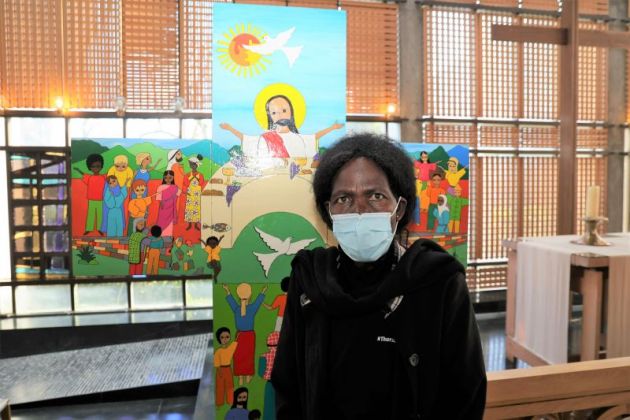All needed at table, including groups like KKK to tackle racism and save planet, says world churches' leader

Racism and discrimination are sins, says Dr. Agnes Abuom.
Yet in the third decade of the 21st century, the world must change how it addresses them, including having all at the table including perpetrators such as the KKK to solve them.
That way, they can help rescue humanity and save God's creation, but that includes engaging with groups considered deeply racist.
The World Council of Churches moderator spoke in a recent interview with the WCC during a three-day conference to commemorate the start of the WCC's Programme to Combat Racism in 1971.
The WCC brings together nearly 600 million Christians worldwide from Anglica, Orthodox and Protestant traditions and is based in Geneva, Switzerland.
Abuom said it is now time to engage with a broader spectrum of people, including the perpetrators of the sins, but it will need hard work.
"The issue as addressed from before 1948 metamorphosized into the PCR, which was to support the liberation eventually of those nations; it was to try to address racism. But eventually, it focused on the oppressed, being set free," said Abuom.
In that sense, the churches achieved their goal, but racism and xenophobia remain global issues "after South Africa became independent.
"And now, with all the economic, climate issues, and other, the threat to life across the world has resurfaced differently."
Those are due to predominantly monolithic, mono-religious societies "all of a sudden," having to face migration of refugees and "migrants find themselves now in a multi-diverse context."
NO PROFILING
While focusing on combating racism, the churches did not intentionally seek to bring the voice, narrative, and memory of "who we consider racist," said the moderator, noting that must change.
"And I believe we are in a situation where all narratives must be at the table as much as possible, without profiling," she asserted.
She said it is time to engage even with groups like the "KKK clans" in the US and supremacists.
"At the end of the day, if we do not change, it is not even racism that will kill us. It is our model of relationship to creation, and the planet disappears with all of us," said Abuom. "So we need a transformation of our minds, a renewal of our minds, like Paul says.
"When we look at the indigenous people under their history, and the current situation of climate change, equal justice; when we look at the Pacific, as whoever is in that part of the world will have to sink; when we look at Africa, the desertification will take everybody white, black, green, and red.
"So, these are global issues. It is no longer just a question of saying; it is a sin; it is a heresy. No, it is a question of life and death."
Abuom says she may not have all the answers but hopes that the Ecumenical Center in Geneva becomes a facilitator, provides toolkits and offers "some workable methodologies" so that the churches across the WCC membership can engage on this issue by creating safe spaces for encounters.
SAFE SPACES
"It's beyond racism and racial relations; it is ethnic, it is xenophobia. So, if our churches could create safe spaces, safe in the sense that I as a perpetrator have the opportunity, and more so the protection to come and engage in a dialogue on why I'm doing what I'm doing."
"It is a long haul, transformative process that demands both individual transformation, community transformation, national transformation, and global transformation," said the WCC moderator.
But before the churches get to inviting the perpetrators and engaging with them, they need to be clear about how we will manage such potentially conflictual encounters. They will be conflictual in revisiting memories that are wounds due to people having been violent, said Abuom.
"I speak from what I have gone through at home," said Abuom, an Anglican from Kenya, a country that has had its conflicts.
She said that the discussions on the PCR were an affirmation that "we have a problem."
"Now, having dissected the problem, we need now to say how do we solve this problem?" noted Abuom.
"And that is the part that will require different dimensions. There are different methods, different toolkits, which our member churches have. But to do that, I talked about a mindset change; we need to have a mind of inclusivity," said Abuom.
Abuom said there is a demand on the faith communities to offer something that the others seek and cannot provide.
The churches are in a better situation than in 1971, she said.
"We were then in the second decade of development, where the UN development agencies saw religion as an obstacle. Today, there is that ongoing dialogue, there is space at the UN level, there is space in the government, perhaps we haven't appropriated enough of it," said the WCC moderator.